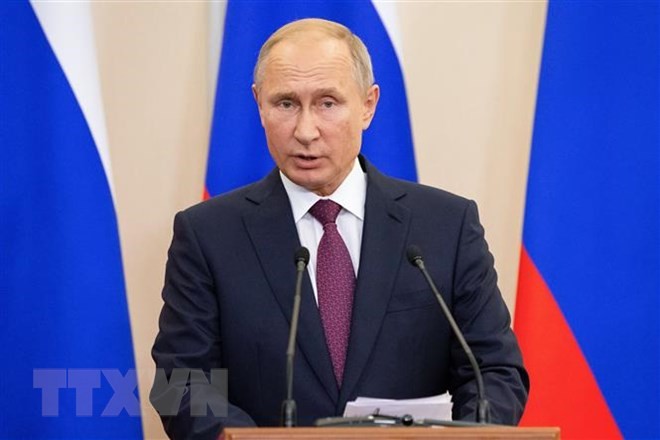(VOVWORLD) -With the US’s influence waning, Russia, under the leadership of President Vladimir Putin, is becoming the mediator in many areas.
 Russian President Vladimir Putin Russian President Vladimir Putin |
A Russia-Germany summit in Moscow during Chancellor Angela Merkel’s visit to Russia on January 11th caught the world’s attention. Analysts said the summit could thaw relations between the West and Russia and boost Russia’s influence on international issues. Chancellor Merkel sought Russia’s support for saving the Iran nuclear deal, resolving the crises in Syria and Libya, ending the violence in eastern Ukraine, and building the Nord Stream 2 Pipeline.
Hope of saving the Iran nuclear deal
Since the US unilaterally withdrew from the Joint Comprehensive Plan of Action, a nuclear clear signed in 2015 between Iran and the P5+1 (5 permanent UNSC members plus Germany) and reimposed sanctions on Iran, Tehran has gradually reduced its commitments to the deal, pushing the JCPOA to the verge of collapse. The UK, France, and Germany have been trying to save it but with little success.
Russia is one of the few countries that still has good relations with Iran. Moscow has maintained good relations with countries in the region, even Iran’s rivals. Russia is seen as having the most influence on Iran, which is a reason for European countries like Germany to work with Russia. But there is no guarantee that Russia can maintain Iran’s compliance with the deal.
“Big player” in the Syria and Libya crises
Russia has also consolidated its role in other places in the Middle East, notably Syria. Since it first intervened in Syria in September, 2015, Russia has helped the Syrian government strengthen its position, fighting off foreign-supported opposition forces, and defeat the self-proclaimed Islamic State terrorist group.
Meanwhile the US’s influence in Syria has waned, particularly since the withdrawal of US troops from northern Syria last October. Russia and Turkey have respected a ceasefire in Idlib in Syria’s northwestern region since January 9.
Russia and Turkey have been mediating a ceasefire among factions in Libya with a hope of ending the fighting which, since last April, has killed or injured thousands of people and forced over 300,000 people to flee their homes.
In Libya, Moscow and Ankara are playing different roles. Although Russia has not directly intervened in Libya, pro-Russian forces have backed the Libyan National Army (LNA) led by General Khalifa Haftar to fight against Turkey-backed Government of National Accord (GNA) forces. A high-level meeting between the GNA and the LNA is about to take place in Moscow.
Russia is also the key to stabilizing and ending the conflict in Eastern Ukraine. Last December, President Putin attended the Normandy Four Summit on Ukraine in Paris.
Prior to Chancellor Merkel’s Moscow visit, German officials were touting Moscow’s role in resolving global crises. Omid Nouripour, in charge of external policies for Germany’s Green Party called President Putin the most influential leader in the Middle East, Libya, and eastern Ukraine.